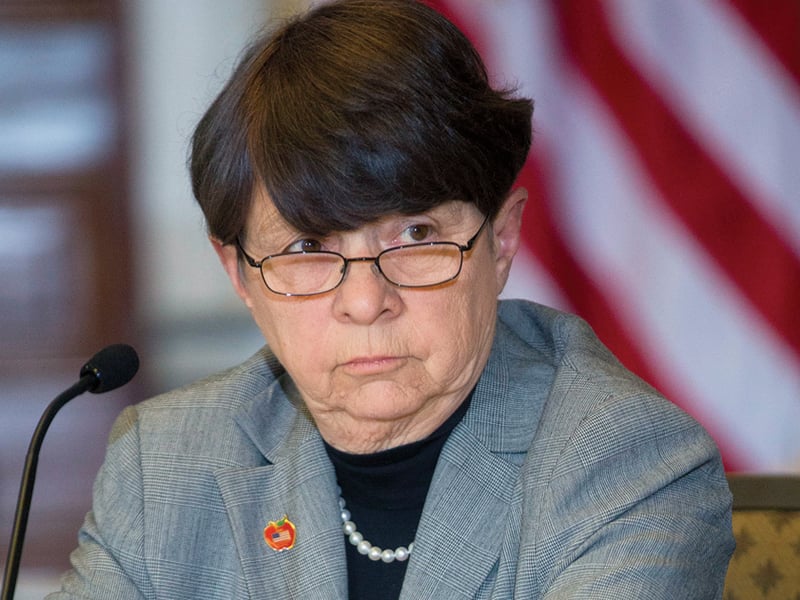Securities and Exchange Commission Chairwoman Mary Jo White told lawmakers Tuesday that if the agency proposes a rule to raise retail investment advice standards, it may not mesh perfectly with a separate Labor Department rule that will soon be finalized.
Republican lawmakers at a House Appropriations subcommittee hearing on the SEC budget expressed concerns about the DOL fiduciary rule and how it would operate with a similar SEC rule, if the agency acts on the authority provided by the Dodd-Frank financial reform law to promulgate such a regulation.
Rep. Mark Amodei, R-Nev., asserted that there would be confusion, as financial advisers try to comply with one rule from DOL and one from the SEC.
“You try to make them land identically, if you can,” Ms. White said. “But they're separate agencies [with] separate statutory mandates.”
Although Ms. White
supports a uniform fiduciary standard, she told legislators there's no guarantee the agency will propose its own rule. She first has to convince at least two other commissioners on the five-person SEC to join her in introducing a regulation.
The SEC has not made much progress on a rule since the Dodd-Frank law went into effect in 2010. Over the years, Republican commissioners have expressed skepticism about the need for a regulation requiring advisers act in their clients' best interests, which likely would result in a difficult rulemaking process.
“It's very hard and not quick to do this well,” Ms. White said. Later, she added: “It's not up to me alone.”
The DOL rule, which was introduced last year and
sent to the Office of Management and Budget for review at the end of January, could be released in final form as early as next week or sometime in April. It would require financial advisers to act as fiduciaries for clients in retirement accounts.
Advocates of the rule say it is necessary to protect workers and retirees from conflicted advice that results in high investment fees that erode nest eggs. Opponents say the rule is complex and costly and would make investment advice too expensive for people with modest accounts to attain.
Mr. Amodei also expressed doubts about the DOL's ability to enforce its rule. The rule provides for a legally binding contract that requires advisers to act in their clients' best interests. Under the contract, investors can pursue court cases or arbitration claims.
But Mr. Amodei asked Ms. White whether the SEC would step in and enforce the DOL rule.
“They have some enforcement authority on their own,” Ms. White said. “We don't enforce the Labor Department rules per se. Our enforcement authority is under the federal securities laws.”
Another issue that has been rankling Republican lawmakers is coordination between the DOL and the SEC regarding the DOL rule. Rep. Tom Graves, R-Ga., highlighted a
recent Senate report that asserted that DOL staff ignored advice from SEC staff about how to construct the DOL rule.
“The staff of the SEC did provide substantial technical assistance to the Department of Labor, including bringing our staff expertise on the broker-dealer model [and] their views about possible impacts of various permutations of the rule,” Ms. White said.







